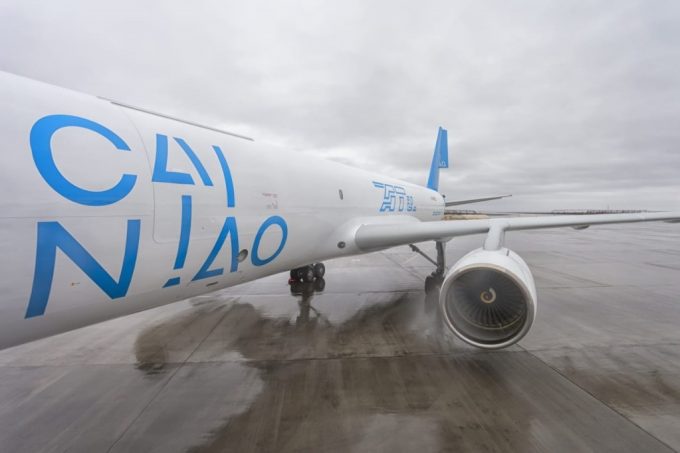Hyundai deploys fire-fighting tech to combat risk from lithium batteries
Hyundai Glovis has designed a device for its car-carrier fleet to suppress fires that break ...

An Aviastar-TU Tupolev Tu-204C caught fire at Hangzhou-Xiaoshan Airport in the early hours of Saturday – all eight crew members survived, but the aircraft did not.
The Cainiao-liveried aircraft was operated on behalf of Alibaba’s logistics arm, with which Aviastar first signed a deal in 2018 for flights out of Hangzhou.
The aircraft was due to fly to Novosibirsk with 20 tonnes of general cargo. According to Aviation Herald, the aircraft was being pushed back for departure when the fire began.
Just two ...
'Disastrous' DSV-Schenker merger would 'disrupt European haulage market'
'Chaos after chaos' coming from de minimis changes and more tariffs
List of blanked transpac sailings grows as trade war heats up and demand cools
Shippers in Asia restart ocean shipment bookings – but not from China
Forto 'sharpens commercial priorities' as it lays off one-third of staff
India withdraws access for Bangladesh transhipments, in 'very harmful' decision
'Tariff hell' leaves industries in limbo – 'not a great environment to plan'
Asian exporters scramble for ships and boxes to beat 90-day tariff pause
Temporary tariff relief brings on early transpacific peak season
Pre-tariff rush of goods from US to China sees air rates soar, but not for long
De minimis-induced ecommerce demand slump could cripple freighter operators
Forwarders 'allowing the fox into the chicken run' by supporting 'hungry' carriers
Hapag 'took the bigger risk' when it signed up to Gemini, says Maersk
'Restoring America's maritime dominance' – stop laughing at the back of the class
Navigating tariffs: 'like trying to solve a Rubik's cube while colour-blind'

Comment on this article